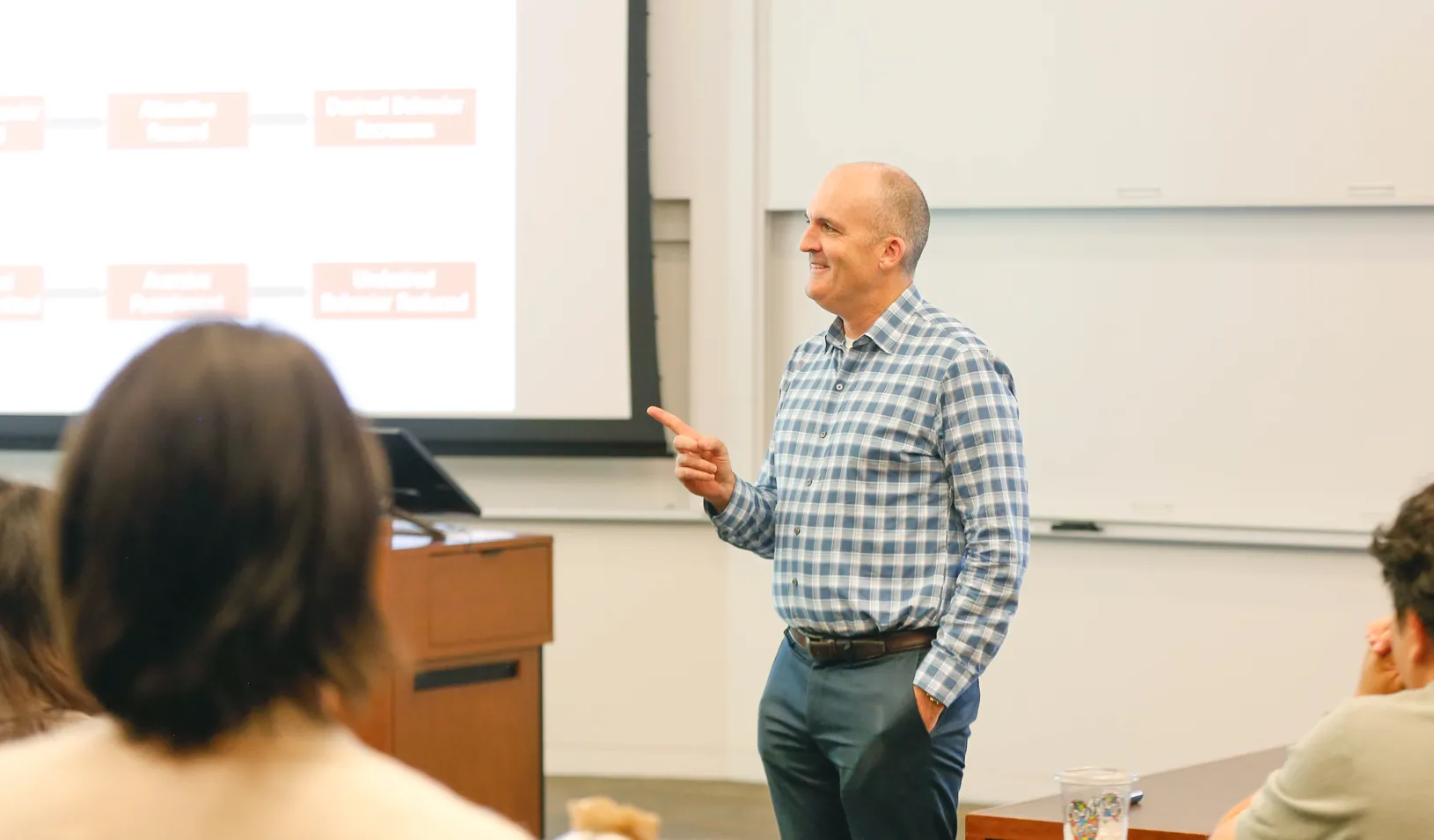
”Nobody woke up today hoping they’d be wrong,” Francis Flynn tells students. | Julia Yu
The first sign that you should take this class: You think you don’t need this class.
“Everybody believes they already know this stuff,” says Francis “Frank” Flynn. “When they show up for the first class session, many people are thinking, ‘I already aced this course.’” After all, incoming GSB students likely know a thing or two about making decisions, motivating people, and communicating effectively. So why are they required to take a class that teaches them how to do those things?
Editor’s Note
In this ongoing series, we bring you inside the classroom to experience a memorable Stanford GSB course.
For nearly two decades, Flynn, a professor of organizational behavior at the GSB, has introduced incoming MBA and MSx students to key concepts of applied social psychology. Even as other parts of the curriculum change, the OB core course remains relevant, he says. “It’s a unique course, in that the content is germane to every career. At some point, everybody’s going to have to deal with the topics we cover.”
Many people aren’t aware of the intuitions and assumptions that guide them as they manage, support, and collaborate with others. “Instead, they rely on autopilot, which is easier and sometimes can even be effective,” Flynn says. But, “when the stakes are high, blindly relying on our intuition might not be enough.”
The process of unlearning flawed assumptions begins in the first minutes of Organizational Behavior. Flynn kicked off his MSx summer course by throwing his 72 students into a high-pressure decision-making scenario. He prefers not to reveal more details (sorry, future students), yet notes how consistently this fun, challenging exercise plays out in setting up the rest of the course. “It engages people immediately and excites them about what else they’re going to be learning in class,” Flynn says.
The exercise led students to recognize several cognitive traps that limit their ability to make sound decisions — default bias, anchoring bias, loss aversion, and risk seeking. “But there’s one true headliner for this show, and that is confirmation bias,” Flynn told the class. Confirmation bias is our tendency to see what we want to see, which leads us to seek information that confirms our beliefs. It’s so strong that, in some cases, when people are shown evidence contradicting their firmly held positions, they may become even more convinced that they are correct.
“Everybody wants to be right. Nobody wants to be wrong. Nobody woke up today hoping they’d be wrong,” Flynn explained. “We have to be wary of how quickly this confirmation bias can set in because it can set in immediately without our knowing.”
Education and experience aren’t sufficient defenses against this and other fundamental biases that misguide us. Yet you can adopt helpful procedures that enable you to make better decisions. The final slide in Flynn’s first lecture summarizes the approach: “Good decisions require good processes.”
Flynn says his most successful students not only approach Organizational Behavior with a touch of humility but leave with a desire to discover more about how they and others think. “You’re just starting on that journey,” he says. “It’s going to be a long learning process — one that will last for the rest of your career.”
For media inquiries, visit the Newsroom.



